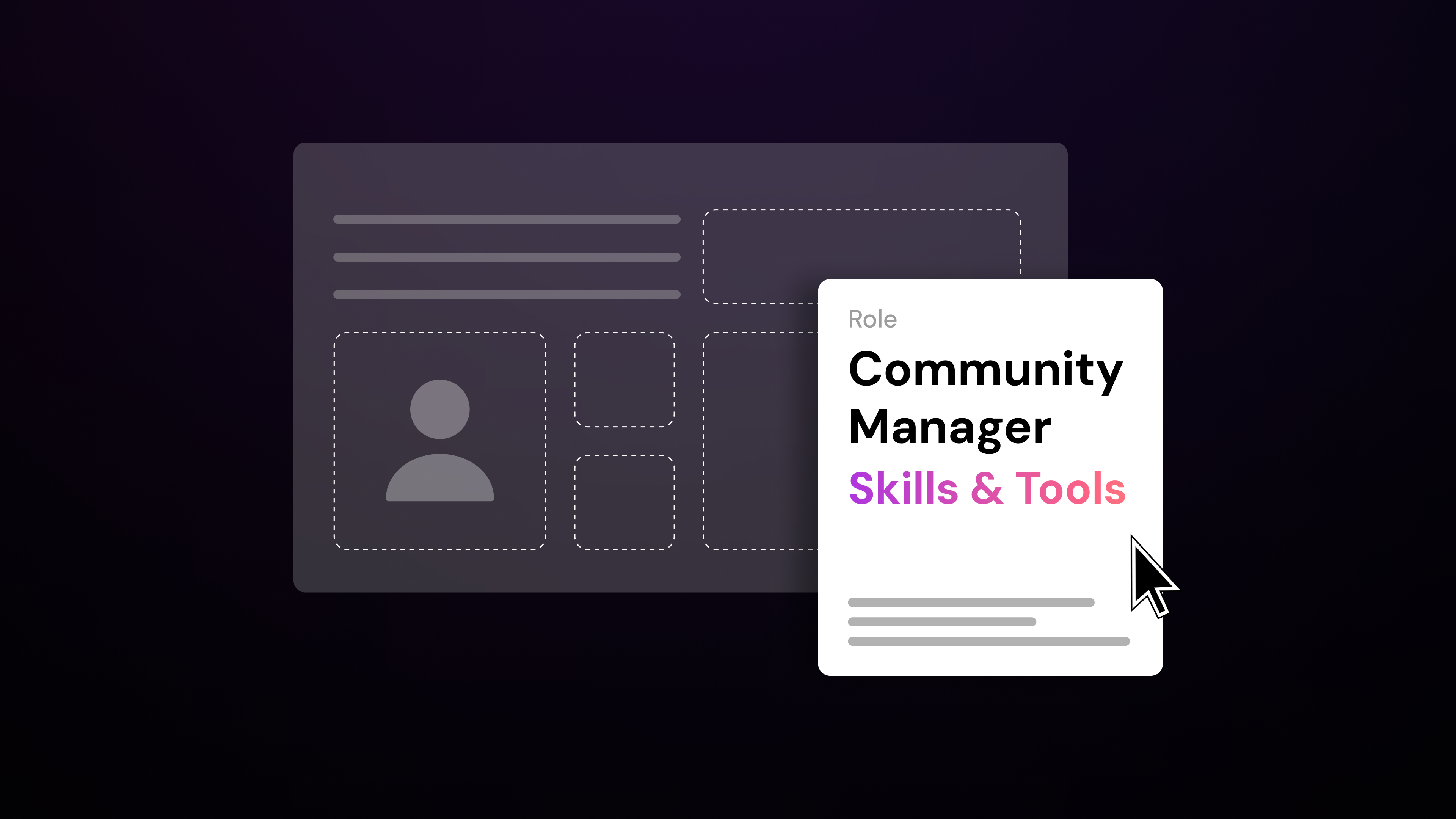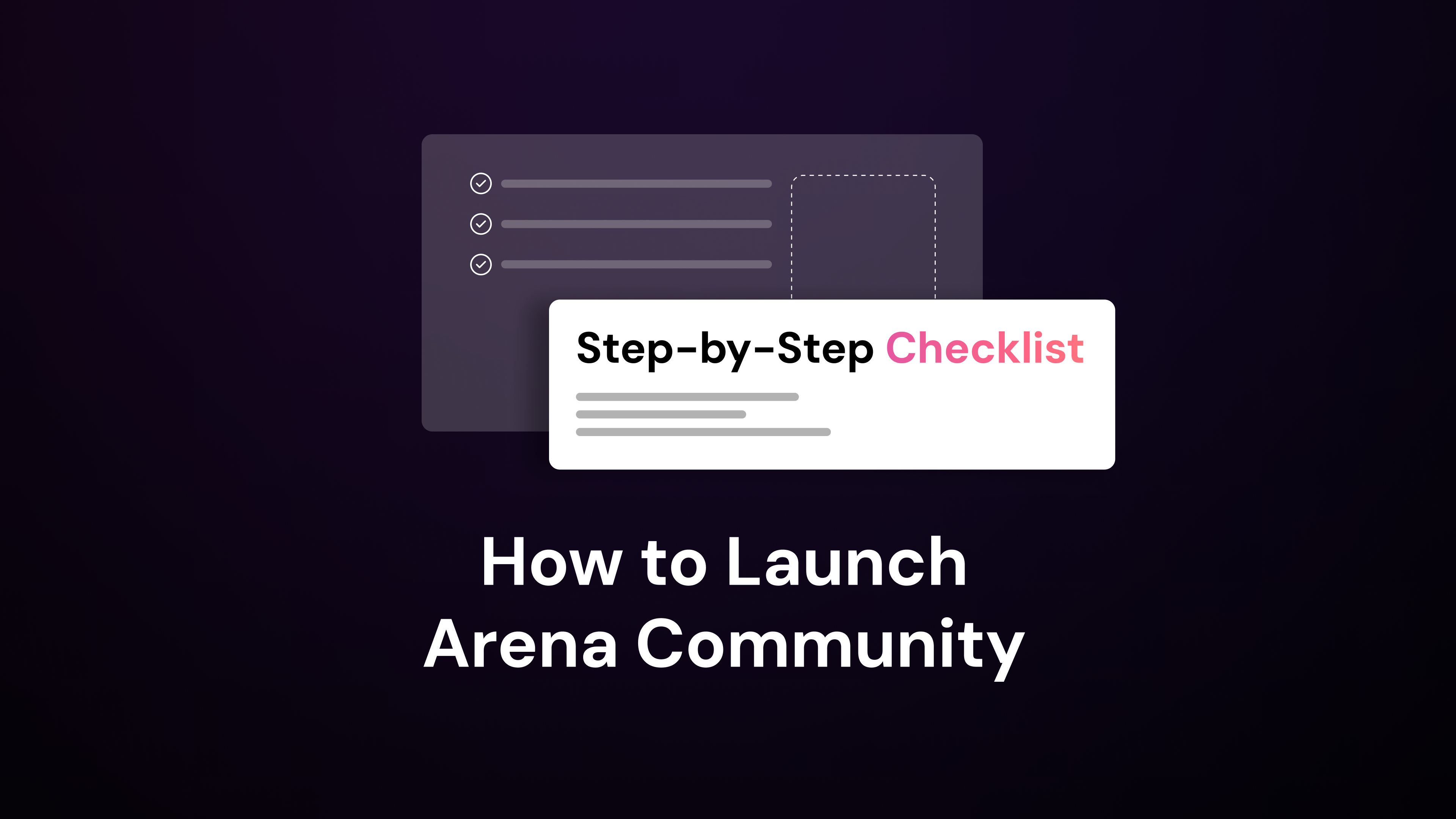A community manager for SMBs plays a crucial role in fostering engagement and growth for small businesses. You might wonder what community managers do and why they are so important for your business. The role can vary significantly depending on the type of community they manage, especially in the SMB landscape. Understanding these types can help you decide what kind of community manager for SMBs your business needs.
Whether you’re looking to boost your brand’s presence on social media or foster a dedicated community on your website, knowing the specifics can guide your hiring process. Let’s break down the different types of community managers and what they focus on.
Here’s a closer look at the various roles and responsibilities of community managers for SMBs.
What Is a Community Manager for SMB?
A community manager for SMBs acts as the bridge between your brand and its customers. They are responsible for building meaningful relationships and engaging with customers across social media platforms, forums, and other online communities. Serving as the face of your brand, they ensure that your company’s values and mission resonate with your audience.
Community managers establish and maintain active social media profiles, create engaging content, and foster discussions that enhance brand loyalty. By encouraging customer interactions and promptly addressing inquiries, they help build a vibrant community that supports growth and customer retention.
Key Responsibilities of Community Managers
In the dynamic landscape of SMBs, a community manager’s role is pivotal in fostering robust customer relationships and driving brand loyalty. Let’s explore their key responsibilities.
Engage with Customers Across Platforms
Community managers actively engage with customers on platforms like social media, forums, and blogs. Their goal is to create authentic connections that enhance brand loyalty and advocacy. They achieve this by crafting and sharing resonant content, ensuring the brand’s voice is consistent and engaging. Leveraging digital marketing channels plays a crucial role in expanding community engagement and growth.
Build and Nurture Customer Relationships
Building and nurturing customer relationships is at the heart of community management. By developing a supportive environment, community managers encourage feedback and interaction, which are vital for brand development. Streamlined communication and prompt responses ensure efficiency and satisfaction within the community. Organizing online interactions, such as events and discussions, further strengthens the bond between the brand and its audience.
Monitor Brand Sentiment and Feedback
Community managers monitor brand mentions and customer feedback across various platforms. This allows them to address concerns promptly and gather valuable insights into customer perceptions. By staying attuned to the community’s sentiment, they can proactively manage the brand’s reputation and inform strategies for improvement.
3 Different Types of Community Managers?
Social Media Community Manager
A Social Media Community Manager focuses on managing communities on social media platforms. This role involves creating and curating content, engaging with followers, and monitoring social media channels for brand mentions and customer feedback. The manager is responsible for growing the community by attracting new followers, keeping existing ones engaged and building thriving online communities. This often includes responding to comments, messages, and reviews, as well as running social media campaigns to boost engagement and brand awareness.
Brand Community Manager
A Brand Community Manager oversees communities specifically related to a brand. This role goes beyond social media, encompassing forums, brand-specific websites, and other platforms where the brand has a presence. They work to build a loyal customer base by fostering relationships and creating a sense of community around the brand. This includes organizing online and offline events and creating content that resonates with the brand’s audience. They also gather feedback from the community to help improve products and services.
Online Forum Community Manager
An Online Forum Community Manager moderates and engages with members on online forums. This role involves ensuring that discussions stay on topic and that community guidelines are followed. They facilitate conversations, answer questions, and provide support to forum members. This type of community manager also works to grow the forum by attracting new members and encouraging active participation. They often collaborate with other team members to create content that addresses common questions and issues within the community.
The Benefits of Having a Community Manager for SMBs
A community manager plays a key role in fostering relationships with your customers. Engaging with them regularly creates a sense of belonging and trust. This ongoing interaction helps customers feel valued, increasing their loyalty to your brand. Customers will likely remain committed to your brand over time when they see that their feedback and participation matter. This loyalty helps retain existing customers and encourages them to become brand advocates, promoting your business to others. Discover effective community tactics and tools to enhance these benefits.
Enhance Brand Loyalty
A community manager plays a key role in fostering relationships with your customers. You can use effective customer engagement strategies to enhance brand loyalty further. Engaging with them regularly creates a sense of belonging and trust. This ongoing interaction helps customers feel valued, increasing their loyalty to your brand. Customers will likely remain committed to your brand over time when they see that their feedback and participation matter. This loyalty helps retain existing customers and encourages them to become brand advocates, promoting your business to others.
Improve Customer Support
Timely assistance is a significant benefit of having a community manager. They monitor various platforms to address customer queries and issues promptly. This quick response time can significantly enhance the customer experience, showing that your business is attentive and cares about resolving problems efficiently. A community manager helps maintain a positive relationship with your customers by providing consistent support, reducing frustration and increasing overall satisfaction. Explore more on boosting customer engagement to improve customer support.
Generate Valuable Insights
A community manager gathers valuable feedback and insights from your community. By listening to what customers say, they can identify trends, preferences, and areas for improvement. This information is crucial for making informed decisions about product development, marketing strategies, and customer service enhancements. Customer engagement explained for generating valuable insights can help you better understand your audience’s needs and expectations, allowing you to tailor your offerings more effectively.
Increase Brand Awareness
Promoting your brand through community engagement is another significant benefit. A community manager actively participates in discussions, shares relevant content, and encourages user-generated content. These activities help spread the word about your brand, reaching a wider audience. Engaging with the community also helps build a positive brand image, showing that your business is approachable and values customer interaction. Increased brand awareness can lead to more potential customers discovering your products or services, ultimately driving growth and sales.
What Essential Skills Should a Community Manager for SMBs Have?
You might be concerned about finding the right fit for your business. A community manager needs a blend of skills to be effective. Let’s explore the key skills they should have.
1. Communication and Interpersonal
You need to communicate clearly and effectively. This involves not just speaking but also listening. Whether you’re engaging with community members, addressing concerns, or coordinating with your team, strong communication skills help you build trust and foster a positive environment. Interpersonal skills are equally important. You must be approachable and empathetic, making community members feel valued and heard. This helps resolve conflicts and maintain a harmonious community atmosphere.
2. Writing and Content Creation
Creating engaging content is a key part of your role. You should be able to write compelling posts, articles, and updates that capture the community’s interest. This includes understanding the tone and style that resonates with your audience. Beyond writing, you should also be adept at creating visual content like images and videos. These skills help you keep the community engaged and informed, driving ongoing interaction and participation.
3. Knowledge of Social Media Platforms and Trends
Staying updated with the latest social media trends and platform features is crucial. You should know how to leverage different platforms to maximize engagement. This includes understanding the algorithms, best posting times, and the type of content that performs well on each platform. Knowing trends lets you keep your community relevant and dynamic, attracting new members and retaining existing ones. Enhance your virtual community engagement with these skills.
4. Analytical and Problem-Solving
Analyzing community data helps you understand what works and what doesn’t. You should be able to interpret metrics and derive actionable insights. This involves tracking engagement rates, member growth, and other key performance indicators. Problem-solving skills are essential for addressing issues that arise within the community. Whether resolving conflicts or troubleshooting technical problems, being able to think on your feet ensures smooth community operations.
5. Empathy and Emotional Intelligence
Empathy allows you to connect with community members on a deeper level. Learning more about the importance of customer vs audience engagement in community management can help you empathize with members. Understanding their needs, concerns, and feedback helps create a more inclusive and supportive environment. Emotional intelligence involves being aware of your own emotions and those of others. This skill enables you to manage interactions more effectively, ensuring that members feel respected and valued. It also aids in conflict resolution and maintaining a positive community atmosphere.
What Tools Are Essential for Effective Community Management?
Effective community management requires the right tools to streamline and enhance your efforts. Let’s explore some essential tools that can make a significant difference.
Social Media Management
Managing multiple social media accounts can be overwhelming. Tools like Hootsuite, Sprout Social, and Buffer simplify this process. Hootsuite allows you to schedule posts across various platforms, monitor mentions, and analyze performance in one dashboard. Sprout Social offers similar features but adds robust social listening capabilities, helping you understand what your audience is talking about. Buffer focuses on scheduling and analytics, making it easy to plan your content calendar and measure engagement.
Analytics Tools
Understanding your community’s behavior is key to improving engagement. Google Analytics provides insights into website traffic, user behavior, and conversion rates. This helps you see which content resonates most with your audience. Sprout Social Insights offers detailed analytics for social media platforms, allowing you to track engagement metrics, audience growth, and content performance. These tools help you make data-driven decisions to enhance your community strategy.
Customer Support Tools
Efficient customer support is vital for maintaining a positive community atmosphere. Zendesk streamlines customer service by integrating various communication channels into one platform, making it easier to track and resolve issues. Intercom offers live chat, email, and help center solutions, enabling real-time support and proactive engagement. Freshdesk provides similar features emphasizing automation, helping you manage tickets and improve response times.
Content Creation Tools
Creating engaging content is a big part of community management. Canva offers an easy-to-use interface for designing graphics, social media posts, and other visual content. It provides templates and design elements that save time and ensure professional results. Adobe Creative Suite offers more advanced tools like Photoshop, Illustrator, and Premiere Pro for creating high-quality images, videos, and animations. These tools help you produce content that captures your community’s attention and keeps them engaged.
How Can You Measure the Success of a Community Manager?
Knowing how to measure a community manager’s success is crucial for understanding their impact. Let’s explore some key metrics and indicators.
Track Engagement Metrics
To gauge the effectiveness of your community manager, start by tracking engagement metrics. These include likes, comments, and shares on posts. High engagement indicates that the content resonates with your audience, fostering a lively community. Regularly monitor these metrics to identify trends and understand which types of content generate the most interaction. This helps refine your content strategy to keep the community active and engaged.
Monitor Sentiment and Feedback
Understanding how your community feels about your brand is vital. Use sentiment analysis tools to gauge the overall mood of the community. Positive sentiment reflects satisfaction and loyalty, while negative sentiment can highlight areas needing improvement. Pay attention to feedback in comments, forums, and direct messages. This qualitative data provides insights into community members’ thoughts and feelings, helping you address concerns and improve the community experience.
Measure Customer Satisfaction and Retention Rates
Customer satisfaction and retention are key indicators of a successful community manager. Use surveys and feedback forms to measure satisfaction levels. High satisfaction rates often correlate with a well-managed community. Additionally, track retention rates to see how many community members stay active over time. A stable or growing retention rate suggests that the community manager is effectively engaging members and meeting their needs.
Evaluate the Growth and Activity of the Community
Growth metrics such as the number of new members and overall community size are important. A growing community indicates that the manager is attracting new members and expanding the community’s reach. Also, evaluate activity levels by tracking the frequency of posts, comments, and interactions. High activity levels show the community is vibrant and engaged, reflecting the manager’s ability to keep members involved. Learn how to build a community flywheel for growth to enhance these metrics.
Assess the Impact on Brand Awareness and Loyalty
Finally, assess how the community manager’s efforts impact brand awareness and loyalty. Monitor mentions of your brand across social media and other platforms. Increased mentions suggest that the community is helping to raise brand awareness. Additionally, track loyalty indicators such as repeat engagement and advocacy. Loyal community members are likelier to recommend your brand to others, contributing to long-term growth and success.
What Are 5 Strategies for Effective Community Management?
Effective community management requires a strategic approach. Let’s explore five key strategies that can enhance your community management efforts.
1. Clear Community Guidelines
Clear community guidelines set the tone for interactions and help maintain a positive environment. These guidelines should outline acceptable behavior, prohibited actions, and the consequences of violations. This helps in creating a safe space where members feel respected and valued. Make sure to communicate these guidelines clearly and make them easily accessible. Regularly review and update them to address new issues or changes in community dynamics.
2. User-Generated Content
User-generated content (UGC) boosts engagement and fosters a sense of ownership among community members. Encourage members to share their experiences, stories, and feedback. This can be done through contests, challenges, or simply by asking for their input on various topics. Highlight and share the best UGC on your platforms to motivate others to contribute. This not only enriches the community with diverse perspectives but also builds stronger connections among members.
3. Host Regular Community Events
Regular community events keep the community active and engaged. These events can be online webinars, Q&A sessions, or offline meetups. Plan events that align with your community’s interests and needs. Promote these events well in advance to ensure good participation. During the events, engage with attendees actively and encourage them to interact with each other. Post-event, share highlights and key takeaways to keep the conversation going.
4. Collaborating with Influencers
Collaborating with influencers can significantly boost your community’s visibility and credibility. Identify influencers who resonate with your community’s values and interests. Partner with them for content creation, events, or campaigns. Their endorsement can attract new members and enhance trust within the community. Make sure the collaboration feels authentic and beneficial for both the influencer and your community.
5. Gather and Act on Feedback
Gathering feedback from your community regularly helps you understand their needs and preferences. Use surveys, polls, and direct interactions to collect this feedback. Analyze the data to identify trends and areas for improvement. Act on the feedback promptly to show that you value your community’s input. This not only improves the community experience but also builds trust and loyalty among members.
Is Hiring a Community Manager for SMBs Worth It?
For SMBs, the potential return on investment (ROI) of community management is significant. Hiring a community manager can have a profound impact.
Boost Brand Loyalty and Customer Satisfaction
A dedicated community manager engages with your audience, fostering a sense of belonging and trust. This ongoing interaction helps customers feel valued, increasing their loyalty to your brand. When customers see that their feedback and participation matter, they are more likely to remain committed to your brand over time. This loyalty helps retain existing customers and encourages them to become brand advocates.
Provide Valuable Insights for Product Development
By engaging with your community, a community manager gathers firsthand information about customer preferences, pain points, and suggestions. This feedback is invaluable for refining existing products and developing new ones that better meet customer needs. The insights gained from the community can help you stay ahead of market trends and make informed decisions that drive your business forward.
Cost-Effective Customer Support
A community manager can be a cost-effective way to improve customer support. By handling community interactions, they address customer queries and issues promptly and efficiently. This quick response time enhances the customer experience, reducing frustration and increasing overall satisfaction. Effective community management can also reduce the load on your customer support team, allowing them to focus on more complex issues while the community manager handles routine inquiries and engagement.
Increase Brand Awareness and Sales
A strong community can lead to increased brand awareness and sales. Community managers actively promote your brand through various engagement activities, such as social media posts, online events, and user-generated content campaigns. These activities help spread the word about your brand, reaching a wider audience and attracting new customers. Engaging with the community also helps build a positive brand image, showing that your business is approachable and values customer interaction.
How Can Arena Help You Take Community Management to the Next Level?
Understanding the role of a community manager and equipping them with the right skills and tools is crucial for SMBs. Arena offers AI-powered community-building tools designed to enhance user engagement and drive monetization. Our platform provides everything from real-time chat and dynamic live blogs to advanced analytics, ensuring your community manager has the best resources to succeed.
By leveraging Arena’s customizable and easy-to-integrate solutions, you can create immersive community experiences that boost traffic, engagement, and customer loyalty. Ready to transform your community management strategy? Sign up now and see how Arena can help you build a thriving, engaged community.



